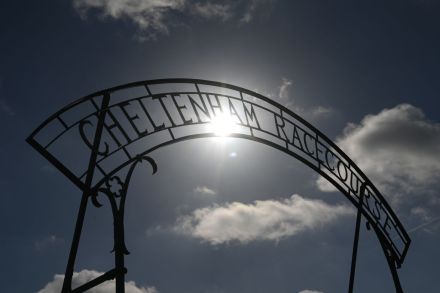I bought a bank
‘I bought a bank.’

‘I bought a bank.’


‘Not more politics.’

‘All he does is moan.’

‘Jeremy’s so clever – for a party piece he names all 73 genders.’


‘It’s terribly sad that the BBC is under threat of extinction.’


‘I’m getting the new fat jab.’

If you were to ask me how many bicycles I’ve had in my life, my response would be about as precise as Boris Johnson’s to the question of how many children he’s fathered. In my case, so many bikes have been stolen over the years – including one attached to a signpost (which vanished along with the bike) and another that I left unlocked for 45 seconds outside Nicolas on Holland Park Avenue. That turned out to be the most expensive bottle of wine I’ve ever taken to a dinner party. (In fact, that was the same bike that had previously been harvested of 90 per cent of its components after

How Rod Stewart kept his hair in place, why the BBC gave its presenters electric shocks and what Paul Gascoigne shot with an air rifle: this month’s London postcode area is N – buckle up for another trivia-packed tour…

There are only so many times I can watch Lord Sugar swivelling in his chair and reusing put-downs from three seasons ago before enough’s enough, so I’ve dropped in and out of the latest series of The Apprentice. But one contestant that has caught my eye is Victoria Goulbourne, the flight attendant turned online sweet shop owner (note: not sweat shop, despite what one unfortunate online review might say) from Merseyside. And while I pass no judgment on her business acumen, it did get me thinking: what a miserable thing an online sweet shop must be. Victoria’s company markets itself as the ‘UK’s most Instagrammable pick ’n’ mix’. Quite apart
Over dinner with a friend last week, halfway through a bottle of Merlot, I noticed her eyes starting to glaze over as I spoke. Normally, I’d be offended – but it’s something I’ve experienced a lot lately, and I’ve only got myself to blame. I was in the middle of telling her a story about my latest running route, which is a slightly different version of a run I’ve been doing for years – down the country lanes near my house, but rather than cutting through the footpath in front of the fields, now I take a sharp left and go round the farm, doubling back behind the houses and adding


Almost 30 years ago, my journalistic career began in the faded seaside town of St Leonards-on-Sea, where I spent six months undertaking a crash course in shorthand, typing and all the basic skills of local paper reportage. With no previous experience of just how dismal an out-of-season holiday town could be, my spirits were high on the trip down the A21 – an extended coastal sojourn sounded like fun. The reality of St Leonards in the early 1990s brought me back down to earth with a bump. This once splendid Regency resort – created by the team which had designed London’s Bloomsbury and Regent’s Park – was a wasteland. Its white

Of all the accessories one might expect a celebrity with millions in the bank and army of stylists at their disposal to choose, a bargain watch is not the most obvious. Yet Casio timepieces – some of which sell for little as £10, and most of which cost under £50 – appear to have become something of a status symbol among a certain strata of the well-off and well-connected. Take former Manchester United footballer Gerard Piqué (estimated net worth £66 million), who split up with pop star Shakira last year. Recently the Colombian singer, 45, released a ‘revenge’ single with lyrics ridiculing the retired Spanish player, her partner of 11 years,
Few people enjoy the thrill of a winning punt more than me but there are times when betting becomes (almost) irrelevant. Tomorrow at 3.30 p.m. will be one of them. That’s when seven runners will line up for the Unibet Champion Hurdle, the first championship race of this week’s four-day Cheltenham Festival. I will be at the course to see what I expect to be a hurdling masterclass from Constitution Hill, Nicky Henderson’s vastly-talented six-year-old gelding and the odds-on favourite for the Grade 1 showpiece. To date his racecourse record is flawless: five wins from five races including victory in the Sky Bet Supreme Novices’ Hurdle at this meeting a

Before the Sussexes – before the Grabdication was a twinkle in Meghan’s crocodile eye – there was Sarah, Duchess of York; greedy, grasping, grubby Fergie. Some see Diana as when the stiff upper lip of heritage royalty became the trembling lower lip of the new breed. But the Princess of Wales was a teenage virgin with a headful of dreams lured into a marriage in which she was a breeding machine with a man who was still in love with his ex; this would have made any woman with spirit react. No, Diana was a hard worker with an attractive dash of spite – that revenge dress, that three-in-this-marriage quip – which

It was the end of May 1983, half term week. I was meant to be revising for my O-levels, which were to begin the following Monday, but instead was mooching around town, a teenager ready to be led astray. And when I bumped into a couple of similarly unfocused classmates, that’s exactly what happened. Instead of studying, they’d been seduced by gambling – specifically, betting on the horses. And now they were trying to seduce me. ‘You’ll love it,’ I was promised as they led me into a Ladbrokes, where the air was thick with fag smoke and booming with racetrack commentary. They explained the procedure to me – the

‘You’ll see when you get there,’ my friend said. ‘There’s just a different vibe in Montreal.’ He wasn’t wrong. I travelled from Toronto by train – a five-hour journey made infinitely more bearable by the impressive landscapes that flashed past the window – to find that Montreal is a tale of two cities. Still distinctly North American – and Canada’s second most populous metropolis – Montreal is dotted with all the chrome skyscrapers and wide, bustling intersections you would expect. Yet around each corner there is also a dose of seemingly incongruous European flavour: a cobbled street, an old stone church, a statue in a tree-lined square. For every modern

The received wisdom that the Oscar for Best Picture always goes to mainstream, generally inoffensive ‘quality’ pictures is only partially true. There have been multiple exceptions to this – and increasingly so over recent years, with an influx of younger Academy voters and a desire to be seen as more progressive than in the past. Who knows what it might mean for this year’s Best Picture nominees – which are All Quiet on the Western Front, Avatar: The Way of Water, The Banshees of Inisherin, Elvis, Everything Everywhere All at Once, The Fabelmans, Tár, Top Gun: Maverick, Triangle of Sadness and Women Talking. But while we wait to find out

With the start of the Cheltenham Festival just four days away, I am pleased to say that this column’s antepost book for the meeting is looking decidedly healthy. It can all go badly wrong, of course, over the space of four days but, for now at least, let’s live in hope. Over the past couple of months, I have put up 12 Festival bets and, particularly for the first two days, most of those horses are now being offered at significantly shorter odds by all bookmakers. With more rain falling than was expected this week – and with more to come – this will inevitably suit some horses that I
